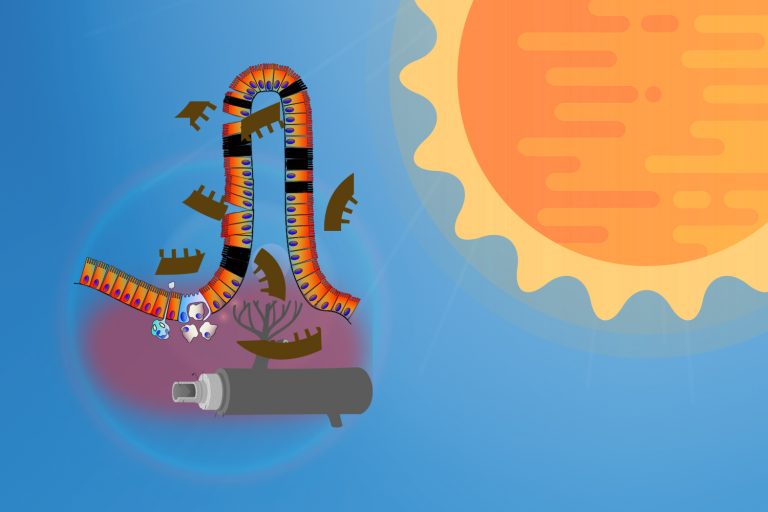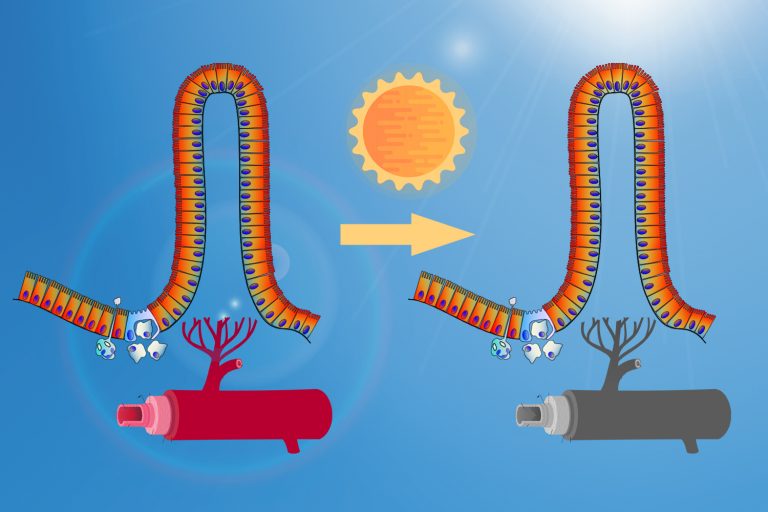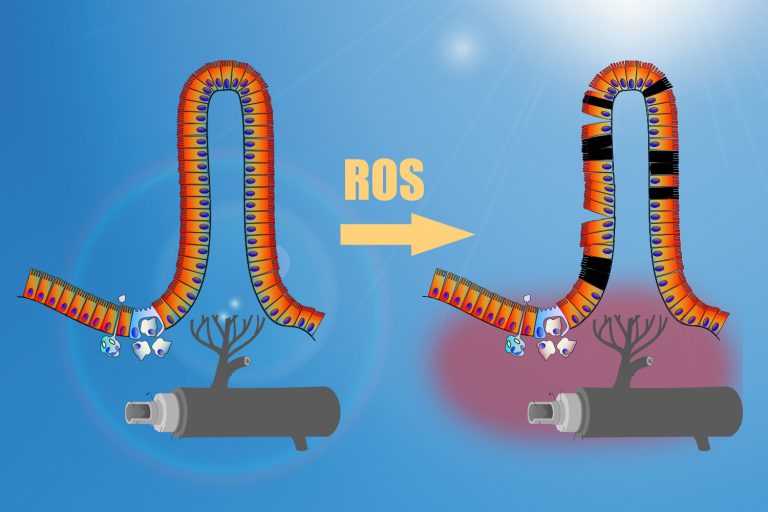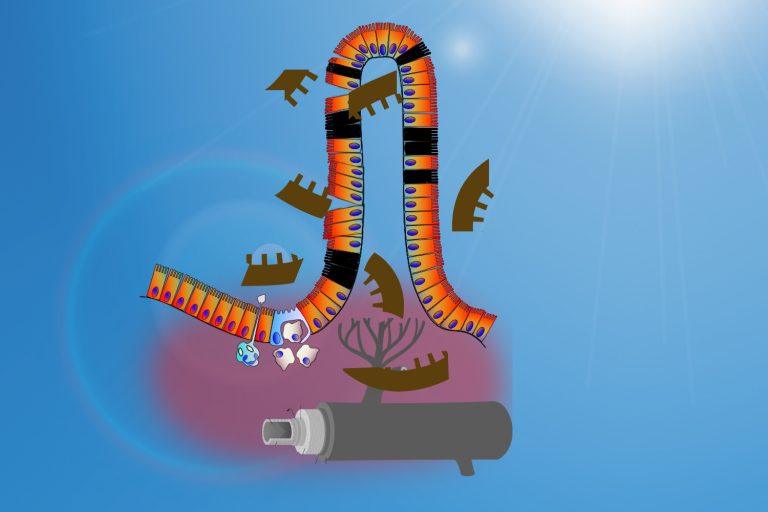IN OTHER LANGUAGES

The gastrointestinal tract is one of the main organs affected by heat stress. Diarrhea, watery feces, digestive infections, inflammation of the intestinal tissues, etc are triggered by the exposure to high temperatures.
In recent years, the gastrointestinal problems that happen during heat stress have been linked to a failure of the gut barrier function (leaky gut). You can learn more about what leaky gut is syndrome in this article.
Redirection of blood flow is a thermoregulatory system vital to maintain the body temperature.
When it is hot, vessels supplying blood to the skin dilate (vasodilation). This allows a higher amount of blood (2 to 4 folds more blood than at comfort temperature) to flow near the surface of the skin, where the heat can be lost to the air, to let the body cool down.
As a result of this redistribution of blood towards the skin, blood flow to internal organs like liver, digestive system and kidneys is reduced.

The reduction of blood flow in the intestinal epithelium causes a decrease in the supply of oxygen and nutrients, as well as an inadequate removal of metabolic wastes. This condition is called ischemia and leads to cell disfunction and death. The intestine is very sensitive to ischemia because it is a very active and metabolically demanding organ.

Ischemia leads to oxidative stress and to the production of highly harmful oxidant compounds called ROS (reactive oxygen species).
ROS have negative effects on the structure and the metabolism of intestinal cells and can even lead to cell death, impairing intestinal integrity and leading to inflammation.

On the other hand, such lesions on the intestinal tissues also lead to digestive infections, watery feces and diarrhea.
Endotoxins, also known as lipopolysaccharides (LPS), are parts of the cell wall of Gram-negative bacteria that live in the intestine, like E.coli and Salmonella sp. Endotoxins are liberated when bacteria die and the cell wall breaks apart.

In healthy animals, with a functioning gut barrier, endotoxins pass through the intestine without being absorbed into the bloodstream.
But whenever ROS harm intestinal cells, the gut barrier fails, becoming more permeable, and it is easy for endotoxins to cross the intestinal epithelium and enter the bloodstream. This condition is called “leaky gut syndrome”.

Once in the bloodstream, endotoxins spread through the body, producing:
Plant extracts are effective to maintain gut health during heat stress because they work throught several mechanisms of action:
Picture of the sun and sky found here. Blood vessels found here.

Certain health statements may not be applicable in your region.